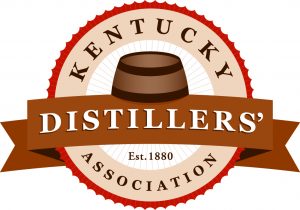
FRANKFORT, Ky. — Sustainability is nothing new to Kentucky’s signature Bourbon and distilled spirits industry. In fact, it’s a way of life for businesses that are often family-operated and dependent upon natural resources, like wood, water, and grains.
In recent years, however, the Kentucky Distillers’ Association (KDA) has formalized its commitment to environmental sustainability to preserve the industry’s ability to grow.
Members like Bacardi, Beam Suntory, Brown-Forman, and Diageo have led the way—sharing best practices and identifying opportunities for collective action, like an environmental benchmarking study with the Beverage Industry Environmental Roundtable (BIER).
In 2018, the KDA and BIER initiated a partnership to measure and report the Kentucky Bourbon industry’s first set of energy, water, and emissions data as an addendum to BIER’s regular biennial report, released earlier this year.
Four Roses, Heaven Hill, OZ Tyler, and Wild Turkey joined existing BIER members Bacardi, Beam Suntory, Brown-Forman, and Diageo in submitting data – ensuring the addendum represents 98 percent of KDA membership by production volume.
Andy Battjes, Brown-Forman’s director of Environmental Health & Safety, was instrumental in initiating the partnership. He recounted, “For Brown-Forman, one of the advantages of being a BIER member is learning from the technical expertise of other member companies and using that information to accelerate our own environmental sustainability improvements. We felt it was important to share this wealth of knowledge with our fellow Kentucky distilleries so we can continue working together to protect and sustain the natural resources that we all depend on and share.”
The results offer an insightful performance analysis of Kentucky’s distilleries, combining benchmarking data from KDA and BIER members to analyze Kentucky Bourbon distilleries’ efficiency when compared to global industry peers.
Overall, Kentucky distilleries’ collective energy and water use ratios consistently declined from 2013 to 2017, and rested below the global distillery averages in 2017.
Specifically, nine of the 11 participating Kentucky distilleries performed within the top 50 percent of global distilleries with regard to energy use ratio.
Moreover, the average water use ratio for Kentucky distilleries decreased over 41 percent from 53.40 L/L in 2013 to 31.32 L/L in 2017, representing a total water use avoidance of more than 6 million kiloliters – enough to fill an Olympic-sized swimming pool nearly 2,400 times!
Heaven Hill Brands is a KDA member that was new to BIER’s environmental benchmarking study, and it presented some of the greatest efficiency improvement.
After updating the water source at its Bernheim Distillery, the company reduced its water usage by 33 percent. By placing two still condensers onto the cooling tower loop, the distillery now recycles water within its operations instead of sourcing it new – saving 330,000 gallons of water per day.
Historically, Heaven Hill Brands has tracked environmental information primarily to comply with regulatory requirements; however, in recent years, it has used data to make informed decisions on sustainability-related equipment purchases and process improvements.
Thanks to the study, the company has identified its environmental footprint, compared it to industry peers’, and discussed ways to strive for even greater efficiency moving forward.
Rhoneé Rodgers, the company’s Environmental Health & Safety manager, said, “Participating in this study helped me understand the beverage industry’s impact on environmental sustainability. While Heaven Hill makes a direct impact locally, we make a greater difference when we work in conjunction with our colleagues across the industry. I feel good about what we have accomplished so far and will continue striving for this goal of environmental sustainability.”
Despite its success, KDA’s first environmental benchmarking study encountered challenges, too. Craft distilleries lacked the employee resources to track energy and water usage over the past five years, and larger distilleries struggled to quantify their Scope 1 and 2 emissions.
Moving forward, KDA will partner with BIER and local stakeholders like the Kentucky Energy & Environment Cabinet’s Division of Compliance Assistance to provide workshops that strengthen these capabilities amongst Kentucky’s distilleries.
For now, KDA and its members are raising a glass of Kentucky Bourbon to toast the group’s excellent results, which can be read online here.




















Add Comment